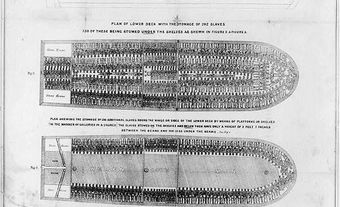Sir David Kirke, trader and privateer, first governor of Newfoundland (born at Dieppe, France c1597; died near London, England 1654). Kirke, with Sir William Alexander, Earl of Stirling, formed the Company of Adventurers, which was granted patents by King Charles I. It gave them the right to trade and settle in Canada. Kirke was the owner of the first recorded Black chattel-slave in New France, Olivier Le Jeune.
Overview
Sir David Kirke was hired by England’s King Charles I to stage raids in the New World. Accompanied by his brothers Sir Lewis (born at Dieppe c 1599; died 1683), Thomas (born at Dieppe c1603; d after 1641), John and James, he captured Tadoussac in 1628. His demand that Samuel de Champlain surrender Quebec was refused (see New France). Kirke left, and captured a French supply fleet off Gaspé. In July 1629, the Kirke brothers forced a bloodless surrender from the starved and destitute French colonists. Thomas was left in charge of the post as governor. However, in 1632 Quebec was restored to the French by the Treaty of Saint-Germain and reverted to French rule.
Did you know?
The earliest record of enslaved Black Africans in New France is the sale of a boy from either Madagascar or Guinea. In 1629, the child, believed to have been six-years-old, was brought to New France aboard a British ship as the chattel-slave of Sir David Kirke. Before leaving for England in July 1632, Kirke sold his slave, then 10 years of age, to Olivier Le Baillif, a French clerk who collaborated with the English. The purchase price was 50 écus, the equivalent of six months regular wages for a skilled person at that time. In 1633, the boy was baptized as Olivier Le Jeune. The deal marked Le Jeune as the first recorded slave sold in New France, and Sir David Kirke as one of the first recorded Europeans to engage in such a transaction in New France (see Black Enslavement in Canada.)
First Governor of Newfoundland
David Kirke was made coproprietor and became first governor of Newfoundland in 1637. He took possession of Ferryland on the Avalon Peninsula, which had been founded in 1621 by Sir George Calvert, Lord Baltimore, as the province of Avalon. Under Kirke, Ferryland became known as the Pool Plantation.
Calvert's prior right in Ferryland had been set aside when he was accused of deserting the settlement. The patent issued to the Company of Adventurers forbade settlement within 6 miles of the shore as well as any interference with visiting fishermen. It did, however, allow Kirke to collect a tax of 5 per cent of all fish and oil taken by foreign fishermen. Kirke developed the infrastructure of a significant fishery on the foundation established by Calvert but came into conflict with the fishing merchants.
Controversy
Sir David Kirke and his company relied on royal favour to retain their rights and supported the king during the English Civil War. Oliver Cromwell's government, fearing that Newfoundland under Kirke might be used as a royalist base for counter-revolutionary actions, raised enough objections to Kirke's control of Ferryland that Kirke was recalled to England in 1651 to answer charges of withholding taxes. The charges could not be substantiated and his wife, Lady Sara Kirke, was allowed to return to Newfoundland to superintend his business, but only after he had transferred five-sixths of his patent rights to Cromwell's son-in-law. Kirke was imprisoned on a suit resulting from his seizure of Ferryland and died in jail. Lady Kirke managed the plantation in his absence and inherited it, and its problems, upon his death.
A hero to some English writers and a pirate in the eyes of the French, Kirke remains a controversial figure in Canadian history.

 Share on Facebook
Share on Facebook Share on X
Share on X Share by Email
Share by Email Share on Google Classroom
Share on Google Classroom

